Garden Armageddon -- Need Advice
Laura (Z5a Fort Collins, Colorado)
2 years ago
last modified: 2 years ago
Featured Answer
Sort by:Oldest
Comments (28)
Laura (Z5a Fort Collins, Colorado)
2 years agoRelated Discussions
Advice much needed! How should I design a flower garden?
Comments (25)For myself, I'm not a fan of plants lining a walk. It makes the walk seem more confined, which is usually not an asset. Granted, if the plants are small they're less offensive and the larger they are, the worse it gets. Plus, all the plants here are creating lines in the landscape. I think it is more pleasing to have plants arranges as blocks/groups of like plants, instead of everything being linear. If they're going to be there, I'd rather see the plants installed as a groundcover along the fences, than along the walk. There could be a bed under the widow that contains these groundcovers or annuals. I know it's not where you're trying to go but a general direction like this is less bothersome to me......See MoreAdvice needed on grass in the rock garden
Comments (3)I don’t know if it’ll work with your grass, but when I need to get rid of Bermuda in my groundcover (Asian Jasmine), I use Grass B Gone. It works great. Otherwise, in some severe instances, I’ve just had to manually pull the grass out ... and replant anything that accidentally comes out with it....See MorePatio and rock filled garden advice needed
Comments (4)I would try to remove the raised patio section so the patio is level. Yes remove the rocks and then decide if you want grass (which may be hard to grow under the tree) or maybe a ground cover...See MoreNeed advice for redoing foundation garden - companion plants?
Comments (14)The neighbor's goats at the only domestic rose bushes I've ever planted so I'm left with wild climbing pink roses. My sister has red knockout rose bushes, keeps adding to them and they're thriving. She adds b one meal and a tiny bit of Epsom salts each spring and, afterward, a small amount of Miracle Grow monthly during the growing season. If you are considering shrubs other than roses, you might check to see if Aucuba bushes will grow well in your planting zone. They keep their leaves and look good year round. When you are ready to replant, certainly do toss the entirely dead barberry bushes but try cutting the others down to within about six or eight inches of the ground before you dig them up and then replant them somewhere in the back yard out of the way, watering and feeding them as recommended by the pros. With all the dead cut off and a new location -- newly loosened dirt -- they might surprise you and grow again....See MoreJerry (Broomfield CO 5)
2 years agoLaura (Z5a Fort Collins, Colorado) thanked Jerry (Broomfield CO 5)Jerry (Broomfield CO 5)
2 years agoLaura (Z5a Fort Collins, Colorado) thanked Jerry (Broomfield CO 5)Laura (Z5a Fort Collins, Colorado)
2 years agogjcore
2 years agolast modified: 2 years agoeastautumn
2 years agoLaura (Z5a Fort Collins, Colorado)
2 years agoeastautumn
2 years agoLaura (Z5a Fort Collins, Colorado)
2 years agolast modified: 2 years agoeastautumn
last yearLaura (Z5a Fort Collins, Colorado)
last yearlast modified: last yearLaura (Z5a Fort Collins, Colorado)
last yearlast modified: last yeargjcore
last yearLaura (Z5a Fort Collins, Colorado)
last yearlast modified: last yearmmmm12COzone5
last yearLaura (Z5a Fort Collins, Colorado)
last yearlast modified: last yearmmmm12COzone5
last year
Related Stories
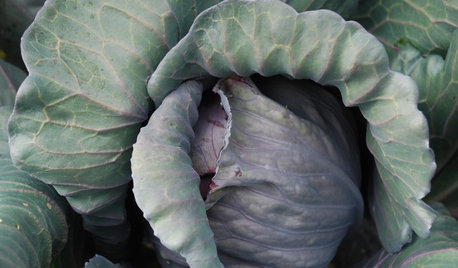
REGIONAL GARDEN GUIDESWelcome the Turning Season: Advice for Your September Garden
Roll with the cooler weather by planting away. Our gardening guides tell you what plant picks are best for each U.S. region
Full Story
OUTBUILDINGSReady for a Garden Shed? Read This Professional Advice First
A good shed can provide storage, become a focal point and make it easier to garden. Here’s how to get it right
Full Story
LANDSCAPE DESIGNGarden Walls: Dry-Stacked Stone Walls Keep Their Place in the Garden
See an ancient building technique that’s held stone walls together without mortar for centuries
Full Story
LANDSCAPE DESIGNThe Garden Edge: Rethink Your Garden Pathways
The right plant choices not only frame your paths with distinction, but they also take you on a journey of the senses
Full Story
GARDENING GUIDESOn the Up and Up: Expert Advice for Growing a Green Wall
Houzz pros share solutions for 7 common challenges you can face with a vertical garden
Full Story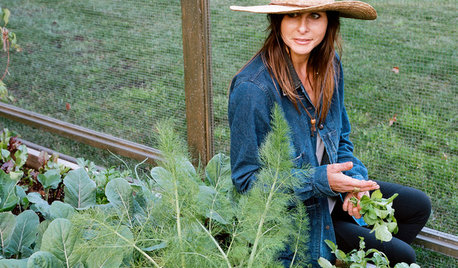
FARM YOUR YARDAdvice on Canyon Farming From L.A.'s Vegetable Whisperer
See how a screened garden house and raised beds help an edible garden in a Los Angeles canyon thrive
Full Story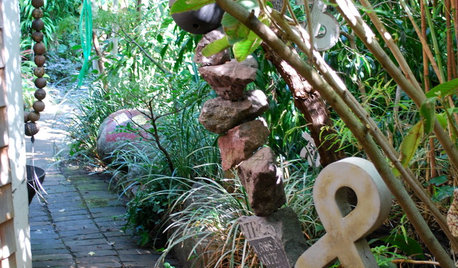
LIFEYou Said It: ‘Name Your Garden’ and More Ideas of the Week
Design advice, inspiration and observations that struck a chord this week
Full Story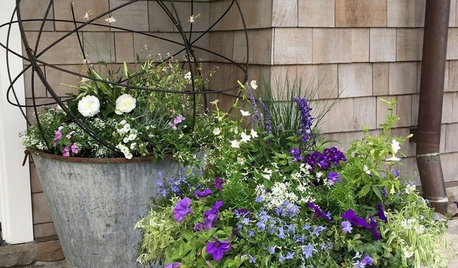
SUMMER GARDENING13 Summer Container Gardens From Houzz Readers
Houzz users share photos of their planters and advice for container gardening success
Full Story
STUDIOS AND WORKSHOPSA New Book Offers Ideas for a Garden ‘Room of One’s Own’
Practical advice and enviable inspiration sheds are all you need to start planning your own backyard getaway
Full Story
FALL GARDENINGMake This Fall’s Garden the Best Ever
Learn the most important tip for preventing buyer’s remorse, plus get more valuable buying and planting advice
Full Story


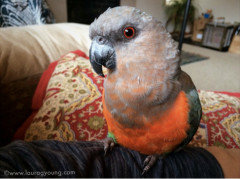
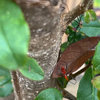

treebarb Z5 Denver